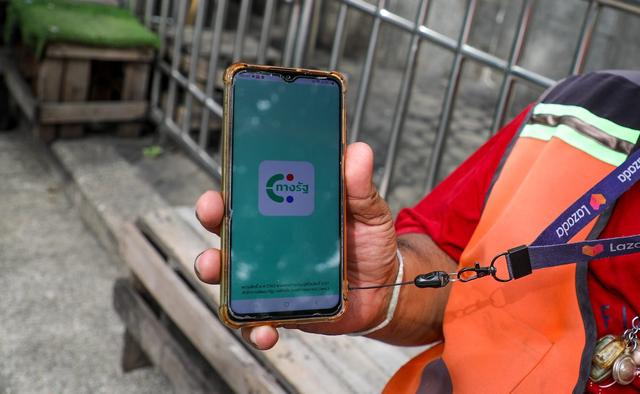Thai PBS Verify found a Facebook page using clips from popular pages featuring corn farming by real farmers in its ads, along with images taken from other pages to appear more credible. The public is urged to be cautious, as the items delivered may not be as promised in the ad.
Source: Facebook

Fact-Checking Process
An investigation revealed that a Facebook page named “สวนสาคร (Suan Sakorn)” ran an advertisement using a video clip from the page “จัน ลั่นทุ่ง (Jan Luntung),” which originally featured a story about a farmer growing sweet corn of the milk corn variety. The video was first published on January 27, 2021, but was reused in the ad to promote the sale of Hokkaido milk corn seeds. The ad has since received over 500,000 views and hundreds of inquiries from interested users. (Recorded Link)

Inside the page, it is described as an agriculture page, created on February 22, 2022. However, upon using Google Lens to verify an image, it was found that the image posted on September 15, 2024, had been taken from the page “มาปลูกผักสวนครัวกันเถอะ (Let’s Grow a Kitchen Garden)”, where it was originally posted on January 12, 2019. (Recorded Link)

We also found that additional images were taken from other pages and reposted. One of them was the page named “เมล็ดพันธุ์ข้าวโพดนมสดเพียวไวท์ฮอกไกโด ส่งฟรีเก็บเงินปลายทาง (Pure White Hokkaido Milk Corn Seeds – Free Shipping, Cash on Delivery),” which confirmed that their images were used without permission. The page stated, “Suan Sakorn” is a fake page. They copied our photos.” (Recorded Link)

Impact of The False Information
The post has attracted significant attention, with the ad receiving over 500,000 views and more than 500 messages inquiring about purchase details. This poses a risk of misleading the public into believing they are buying corn seeds directly from the farmer featured in the video.

Impact of Falling for Fake Advertisements

Dr. Mana Treeyapiwat, Vice President of the University of the Thai Chamber of Commerce and a scholar in communication arts, spoke about the dangers of advertising—especially now that scammers have easier access to the public. He explained that in the past, advertising was not easily accessible to the general public, particularly in the form of mass media, which was limited to channels such as radio broadcasts, loudspeaker trucks, or word of mouth. The impact of such advertising and communication was relatively limited. However, in today’s world, where everyone has access to various media platforms, people are now more directly affected. Especially with the current trend of relying on reviews, influencers, or persons who influence decision-making, it has become easier for people to be persuaded or misled.
Another thing to watch out for is—when you’re thinking about buying or using something, don’t just believe it’s good because someone else says so. The info might be incomplete or even twisted.
Protecting Yourself from Deceptive Advertisements
There are two main strategies for protecting against deceptive advertising. First, government sections, such as the Office of the Consumer Protection Board (OCPB) or other related agencies, take proactive measures to monitor advertising, enforce regulations, and educate the public to help prevent the spread of misleading information. At the same time, individuals need to stay vigilant and critically assess the content they encounter—especially in today’s digital world, where online platforms and AI significantly influence consumer behavior. This awareness is crucial not only for agricultural products but also for many other goods that are marketed using deceptive tactics. Consumers can also play a vital role by reporting suspicious ads and sharing warnings through social media or other platforms to help prevent others from falling victim.




